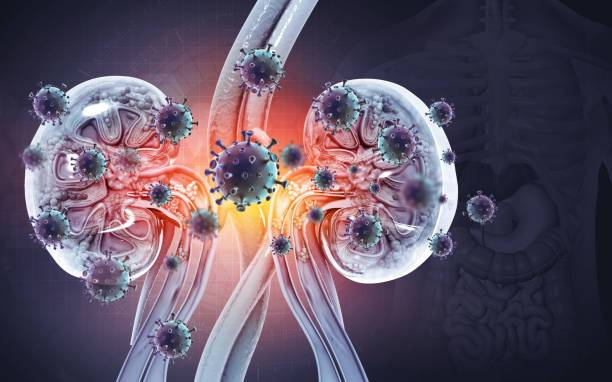Kidney failure, or renal failure, occurs when the kidneys lose their ability to filter waste and excess fluid from the blood effectively. There are two main types of kidney failure: acute kidney failure and chronic kidney failure, each with different causes.
1. Acute Kidney Failure (AKI)
AKI develops suddenly and is often reversible if treated promptly. Common causes include:
- Dehydration: Severe dehydration from vomiting, diarrhea, or excessive sweating reduces blood flow to the kidneys.
- Severe infections: Infections like sepsis can damage the kidneys.
- Blockage of the urinary tract: Kidney stones, enlarged prostate, or tumors can block the flow of urine, leading to kidney damage.
- Blood loss: Major blood loss from surgery, injury, or gastrointestinal bleeding can deprive the kidneys of necessary oxygen.
- Medications: Certain drugs, especially nonsteroidal anti-inflammatory drugs (NSAIDs), some antibiotics, and contrast dyes used in imaging tests, can damage the kidneys.
- Heart failure or shock: When the heart is unable to pump enough blood, the kidneys can be deprived of oxygen and nutrients.
2. Chronic Kidney Disease (CKD)
CKD develops over months or years and typically results in permanent kidney damage. Common causes include:
- Diabetes: High blood sugar levels can damage the blood vessels in the kidneys over time, leading to kidney disease.
- High blood pressure (Hypertension): Uncontrolled high blood pressure can damage the kidneys' filtering units.
- Glomerulonephritis: Inflammation of the glomeruli (small filtering units in the kidneys) can lead to kidney damage.
- Polycystic kidney disease : An inherited disorder where fluid-filled cysts grow in the kidneys, impairing their function.
- Kidney infections (pyelonephritis): Chronic or recurrent kidney infections can scar the kidneys.
- Autoimmune diseases: Conditions like lupus can cause inflammation in the kidneys, leading to kidney damage.
- Obesity: Excess body weight can increase the risk of conditions like diabetes and hypertension, both of which contribute to kidney failure.
- Prolonged use of certain medications: Long-term use of drugs like NSAIDs and certain antibiotics can cause chronic kidney damage.
Early detection and treatment are crucial for managing kidney failure and preventing further damage.


